Drug Trafficking
Drug trafficking charges are a very serious matter. A defendant convicted of such is looking at a felony conviction, substantial monetary fines, and a very real chance at incarceration for a significant period of time. Tennessee law provides:
It is an offense for a defendant to knowingly:
Manufacture a controlled substance;
Deliver a controlled substance;
Sell a controlled substance; or
Possess a controlled substance with intent to manufacture, deliver or sell the controlled substance.
Tenn. Code Ann. § 39-17-417(a)(1)-(4).
Tennessee law divides controlled substances into Schedule I, Schedule II, Schedule III, Schedule IV, Schedule V, Schedule VI, and Schedule VII drugs. Schedule I includes some opiates of various chemical compounds. It also includes fentanyl. Substances are classified as Schedule drugs when the state’s commissioner of health determines that the substances have a “high potential for abuse” and have “no accepted medical use treatment in the United States.” Tenn. Code Ann. § 39-17-405.
Schedule II drugs consist of various opiates but these opiates have some accepted use for medical treatment. For example, drugs listed as Schedule II include cocaine, codeine, morphine, hydrocodone, and raw opium. Tenn. Code Ann. § 39-17-408. Some stimulants and anti-depressants also fall into this category.
A violation of Tenn. Code Ann. § 39-17-417, the drug trafficking law, constitutes a Class B felony when the drug involved is a Schedule I drug or .5 grams or more of cocaine or methamphetamine. If the crime consists of less than .5 grams of cocaine or methamphetamine then the crime is a Class C felony. Generally, the felony class is reduced as one goes up in Schedule number. Thus, an offense for violating the drug distribution law with regard to a Schedule I drug is much higher than it is for a Schedule V drug. But, any of these charges involve felonies.
Get your 100% FREE initial consultation!
The Tennessee Supreme Court addressed a case in which a defendant allegedly offered to sell more than 50 grams of cocaine from his hotel room to an undercover informant. Thus, the government charged the defendant with violating Tenn. Code Ann. § 39-17-417(c), which generally prohibits the manufacture, sale or possession with intent to sell more than .5 grams of cocaine. The Court explained that the law “requires the State prove the existence of three elements beyond a reasonable doubt: (1) that the defendant possessed a controlled substance; (2) that the substance contained 0.5 grams of cocaine or more; and (3) that the defendant possessed the substance with the intent deliver or sell it.” State v. Ross, 49 S.W.3d 833 (Tenn. 2001).
The Court also explained that the term “possession” in the law means both actual possession and constructive possession. Actual possession generally refers to when the defendant has the illegal drugs on his personage or in his belongings. Constructive possession generally refers to a situation in which the defendant has the ability to exercise control or dominion over the illegal drugs but does not have them on his person or directly in his attached belongings. In the Ross case, the Tennessee Supreme Court explained that the defendant constructively possessed cocaine base found in a hotel room when the defendant rented the room, had a key to the room, and paid for the room in cash.
Penalties for drug trafficking increase under Tennessee’s Drug Free School Zone Act. This law provides: “A violation of § 39-17-417, or a conspiracy to violate the section, that occurs on the grounds or facilities of any school or within one thousand feet (1,000′) of the real property that comprises a public or private elementary school, middle school, secondary school, preschool, child care agency, or public library, recreational center or park shall be punished one (1) classification higher than is provided in 39-17-417(b-)(i) for such violation.” Tenn. Code Ann. § 39-17-432(b)(1).
This means that if a person is found to be selling drugs within a school zone, the penalties are higher and so are the fines. “The enhanced and mandatory minimum sentences required by this section for drug offenses occurring in a drug-free zone are necessary to serve as a deterrent to such unacceptable conduct.,” reads the law. Tenn. Code Ann. § 39-17-417(a).
Because the penalties are so severe, defendants need an attorney that will contest the legality of the underlying search and seizure of the contraband. A defense attorney can file a motion to suppress the evidence, arguing that the underlying search of the defendant or his property violated the Fourth Amendment right to be free from “unreasonable searches and seizures.” The Tennessee Constitution also prohibits government officials from engaging in unreasonable searches and seizures in Article I, Section 7. If a motion to suppress is granted, then the evidence is excluded from the case. This principle is known as the “exclusionary rule.” Justice Benjamin Cardozo once famously referred to this rule under the famous saying, “The criminal goes free, because the constable has blundered.” This rule exists in order to ensure that law enforcement officials do not violate the law.
Because of the serious felony charges associated with drug trafficking, a person needs an experienced criminal defense attorney who is well versed in federal and state constitutional law, search-and-seizure principles. Philip N. Clark of PNC Law is just such an attorney.
Not only is Philip N. Clark a zealous advocate on behalf of his clients, he also is a veteran of the law enforcement ranks. He knows the ins and outs of police procedure. He can tell when the police arguably have violated constitutional rights to be free from unreasonable searches and seizures under both the Fourth Amendment of the United States Constitution and Article I, Section 7 of the Tennessee Constitution.
If you face drug trafficking charges, call Philip N. Clark of PNC Law. He will assert whatever statutory and constitutional-based defenses that are available to you under the specific facts of your case.
Connect with Philip N. Clark right away!
(615) 785-2000

